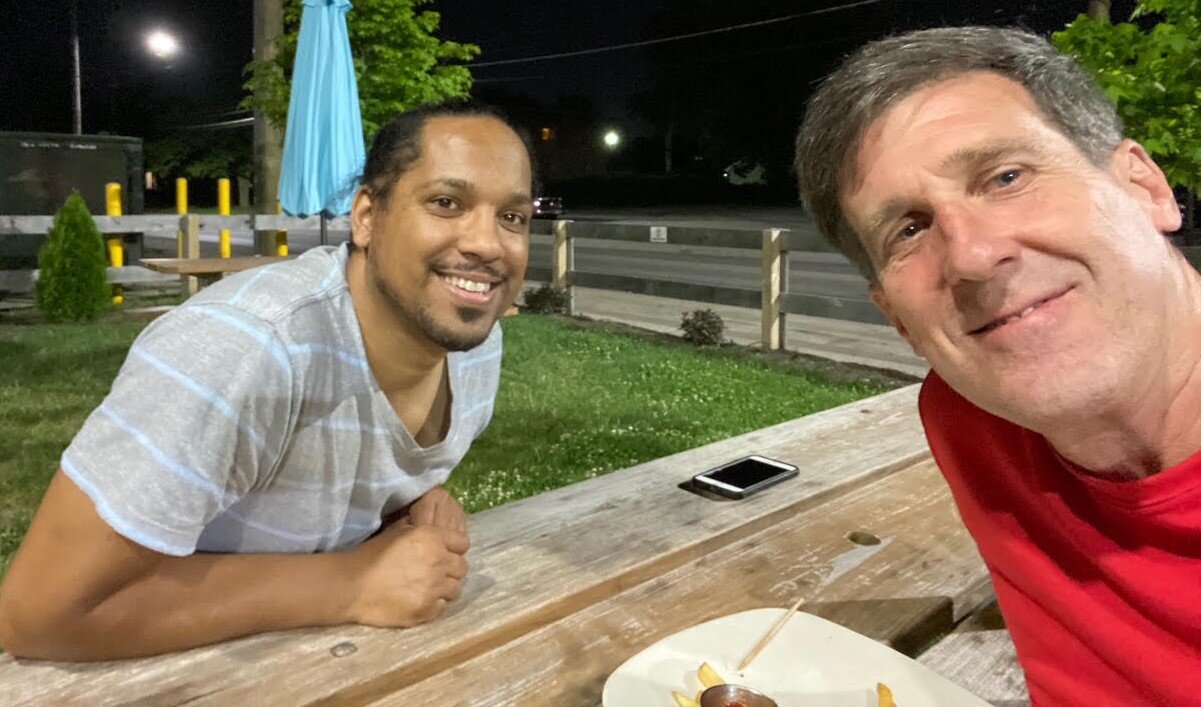My Encounter with Robert: Foster Care Awareness Month
Life sometimes knocks us off our feet with a real encounter that is unexpected, authentic, and transformative. Several years ago, I experienced an encounter that has been transformative in my understanding of poverty. My encounter was with Robert.
Robert is a black male, a minority culture adult in America. Robert lived his childhood in vulnerability, growing up in foster custody.
Poverty swirled around Robert’s childhood. He vividly remembers food insecurities, both poor quality food and not enough food. He remembers housing and sleep insecurities, sleeping without a bed, living amidst roaches and rodents. He recalls clothing insecurities, not having warm clothing in winter, or clothing that looked “normal” amongst peers. He experienced transportation insecurities, walking long distances and riding public transportation for long periods of time. He experienced the poverty of family, not having a loving mother nor a protective father.
I am a white male, a majority culture adult in America. In my childhood, I experienced none of the insecurities that Robert faced. A core component of my identity is as a father. I have served as a kinship dad in the foster system, a host dad with Safe Families, a mentor dad to adolescents, and an adoptive dad to my two kids.
Looking back at those relational connections, I realize that for many years I was naïve to the deep, overlapping connection between children in vulnerable circumstances and poverty.
My first real encounter with Robert was at a foster care information session. As the leader of Coalition of Care, I pursue our mission to mobilize churches and volunteers to care for vulnerable children. I was moderating that event to explain foster care to those who wanted to learn more. Robert was on the panel.
In that panel discussion, and in many conversations since, Robert described heart-wrenching neglect, abuse, and systemic dysfunction. Kids who are burdened with a traumatized childhood like Robert’s will typically age out to become adults who fill our prisons, homeless shelters, addiction programs and mental health systems. They rarely receive a quality education, rarely have successful careers, rarely have stable housing, and rarely find success in marriage or parenting.
Vulnerable children from vulnerable childhoods rarely overcome the cyclical curse of poverty.
But Robert’s adulthood is different. He is happily married and deeply engaged in fathering his sons. He provides stable housing for his family, and has a great career. He serves as a resource coordinator in a public school, helping to meet the needs of students who are wrestling with poverty and vulnerabilities, just as he did. His employer is the same nonprofit agency that took him into foster custody as a child decades ago.
In my encounter with Robert, I asked myself, “Why is Robert’s story different from so many others? Why is his life on a positive trajectory?”
Robert had a handful of people who relationally engaged in his life. Each made a difference. Two key relationships specifically helped guide Robert out of poverty.
The first was an elementary school teacher. She chose to first listen about his circumstances, support his dreams, and discover his strengths.
This teacher invested holistically in Robert. She connected, befriended, and invested in Robert. She provided opportunities for Robert to work, cleaning and organizing her classroom. And she provided fair compensation to Robert for his work. She taught him the value of work, and the power of well-earned compensation.
The second relationship that helped guide Robert out of poverty was with a pastor who he met through music ministry. They developed a relationship which led to Robert becoming a worship director at her church. She taught Robert that money was not something one owns and hoards, but a resource God expects us to share and invest in others. After years of Robert instantly spending every dollar earned, she taught him principles of saving. He began to utilize money to help others, and to leverage money for long-term success rather than short-term gratification.
Robert’s pastor worked with him, rather than doing things for him. She invested in him holistically, in his physical, spiritual, economic, and emotional health. She helped him become a leader in his family, his workplace, and his community. She built social capital with Robert. She later adopted him after he had become an adult.
Robert and I have developed a friendship. He joins me for meals in settings where he is the only person of color, and I join him for meals in settings where I am the only white person. We constantly learn from one another. We discuss topics ranging from credit card debt, to how it feels to share a meal in a restaurant where you are the only one with your skin color.
Relational connections in Robert’s life were impactful, resulting in him marrying his wife, being a great father to their two sons, and having a stable career caring for vulnerable children trapped in cycles of poverty.
May is Foster Care Awareness Month. Robert is a rare success in a foster system that is mired in human brokenness. Success in foster care requires families to get licensed and provide a bed to a child in foster custody, but also so much more. Success in foster care and success in overcoming poverty requires an openness to real encounters with real people, and a willingness to invest in authentic relationships.
Is there a real encounter in your future, an authentic relationship that you should no longer ignore?
By Chris Combs, Executive Director of Coalition of Care in Cincinnati, Ohio. To learn more about Coalition of Care’s work, visit https://coalitionofcare.org/

